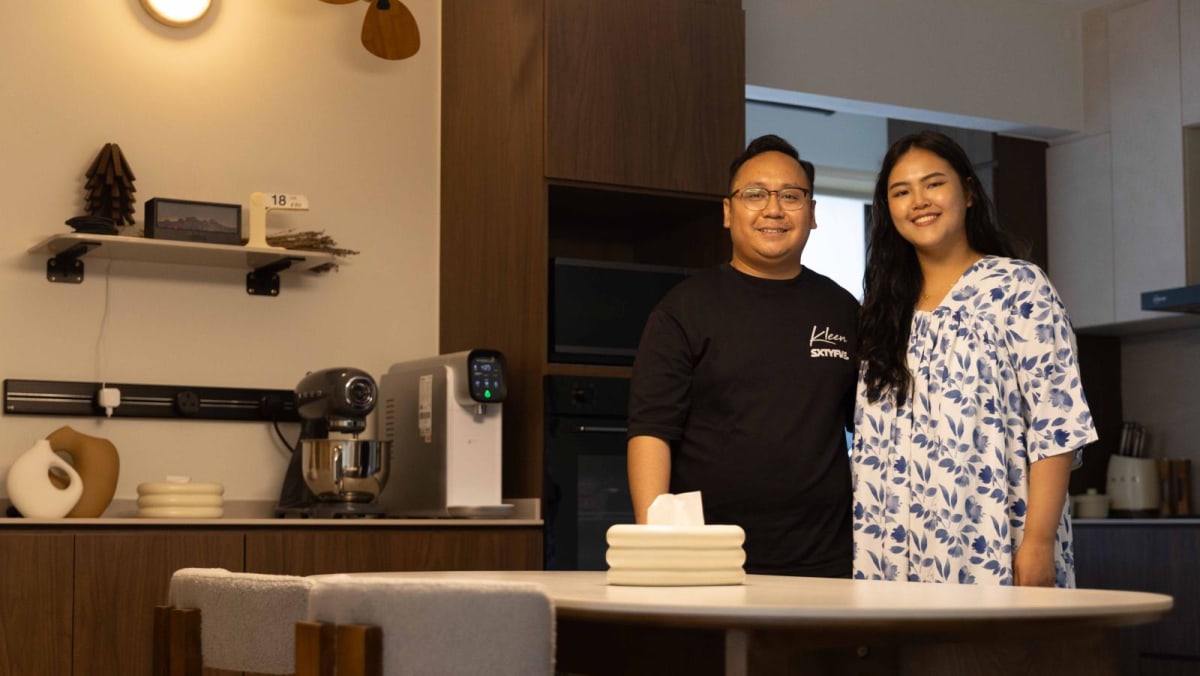Another home owner who wanted to be known only as Ms Tan said she and her husband browsed local shops but couldn’t find anything that caught their eye.
“Everything was very repetitive … We wanted to have something more unique,” the 32-year-old said.
Buying online did not mean compromising on quality either, said Ms Tan, who works in sales. Having lived with mostly Taobao furniture for the past two years, she said the quality has exceeded her expectations.
BUY AND THROW AWAY
Ms Faezah Shaharuddin, co-director of family business Gamar Furniture, said younger buyers are more trend-focused, which platforms like Shopee and Taobao cater to.
She added that slow furniture brands like hers have to “straddle the line” between quality and trends.
“There’s a sustainability aspect to it too. We don’t want to become like fast furniture, because we do think it’s a bit wasteful, and it’s also very expensive and exhausting trying to keep up with the trend cycles,” she said.
Mr Ahmad said brands like his that champion circularity are struggling to survive a “buy and throw” mindset. Still, he understands why people shop online.
“Renovation is expensive in Singapore. House is expensive in Singapore. Furniture is just pure aesthetics for some people. Can use can lah, right?” he said.
Mr Morgan Yeo, director of family-owned furniture brand Roger&Sons, said many buyers see furniture as temporary – tied to the lifespan of a BTO flat.
“To them, they don’t think that they will stay there for a long time,” he said. “So why spend the amount of money?”
Yet this mindset leads to significant waste, he added.
“We only worry about the straws and the paper cups and the plastic bags,” he said. “But we don’t think about the waste we generate when we move into a house.”
A HUMAN TOUCH
Dr Seshan Ramaswami, associate professor of marketing at Singapore Management University, said retailers need to be “extremely service-oriented” and offer customers a one-stop solution for all their furnishing needs.
Assistant Professor Soo Kim from Nanyang Technological University (NTU) business school said homegrown furniture brands have to offer customers something they cannot get from online shopping.
Physical showrooms should not just be a place to browse and buy, but a destination with a “human touch”, she added.
Gamar’s Ms Faezah said her brand retains loyal clients who appreciate face-to-face service.
“There’s a warmth to shopping in person, and we have a lot of long-time clients that we built personal relationships with. That kind of thing can’t really be felt online,” she said.
Some brands are also investing in their online presence. At Cellini, Ms Yong said enhancing the online experience while maintaining physical showrooms has become essential.
“It’s about delivering meaningful value and an exceptional experience. It’s never just about a product,” she said.
Roger&Sons, however, has no intention to move to the e-commerce space.
Making quality furniture takes time, Mr Yeo said. “The only way you can digitalise carpentry is if you mass produce the same type of chairs … Every chair that we do is different.”
Home owners Ms Nurasheila and Mr Syakir said they remain open to “all options” for their future furniture choices – depending on price and convenience. But they are not planning to replace what they have bought anytime soon.
“We bought this furniture hoping it would last,” said Ms Nurasheila. “That’s still the goal.”













